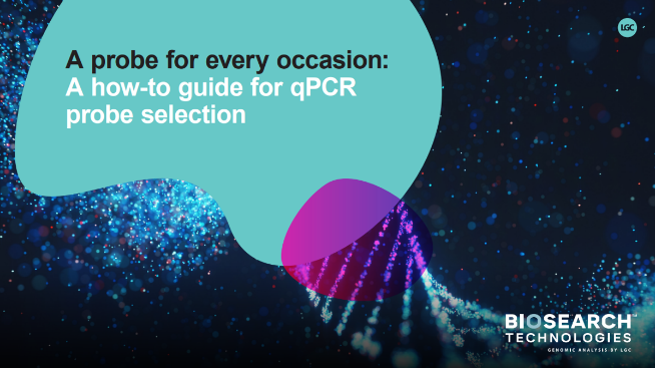
Image Credit: LGC Biosearch Technologies
qPCR is widely used across various applications, including studying gene expression in health and disease, detecting pathogens in clinical samples, and improving breeding decisions for crops, livestock, and aquaculture. The choice of probes and design depends on the specific application's sensitivity, specificity, and throughput requirements, as well as the overall research objectives.
Choosing the optimal probe for a specific application is crucial for assay optimization, as different probes can yield varying results. This comprehensive technical guide by LGC Biosearch Technologies provides valuable tips on:
- Selecting the most suitable probe considering your sample's characteristics.
- Matching probe design with downstream assays.
- Troubleshooting common issues in probe-based qPCR experiments.
Plus a summary of LGC's industry-leading qPCR probe portfolio, highlighting their unique qualities and advantages to facilitate your selection process.
Need more help with probe selection? Try out this online probe selection tool

 Download the full e-book
Download the full e-book

About LGC Biosearch Technologies
Together, we help you advance.
Whether you’re using marker-assisted selection to develop more nutritious and sustainable crops or developing the next generation of molecular diagnostic tests, clinical genomics assays, or novel oligo therapeutics, accurate and high-quality data is everything. And so is speed.
To help keep your mission-critical projects on target and moving quickly, LGC provides a large integrated portfolio of products and services to support your entire genomics workflow and help at every stage of your product development pipeline. From R&D through to large-scale commercialization, our products and services scale up when you do.
Watch the video to see how our unified genomics portfolio helps you discover more, speeding up your work to improve the human condition.
Sponsored Content Policy: News-Medical.net publishes articles and related content that may be derived from sources where we have existing commercial relationships, provided such content adds value to the core editorial ethos of News-Medical.Net which is to educate and inform site visitors interested in medical research, science, medical devices and treatments.